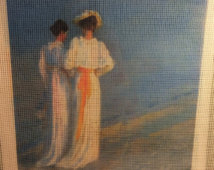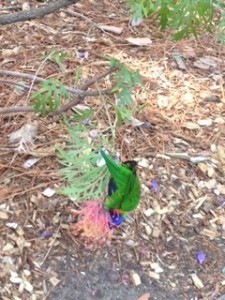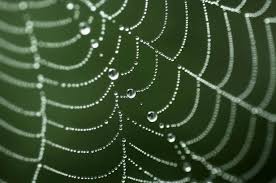It is Anzac day 2016.
The serenity of dawn captures my imagination.
The lake looks like a mirror.
It reflects tiny fluffs of soft pink cloud,
The calmness is palpable.
We in our hundreds turn from the memorial,
at The Entrance to face the lake
and are all drawn towards it
not a sound spoken
as all were under its spell.
How do we allow the narrative of war
and its old lie
made up by those who send the young off
for their benefits . . .
how do we allow it to continue?
When will we say enough
and really mean the words
less we forget?
The following poem has been shared on facebook today by friends. Thanks to Carol for bringing it to my notice. Can we hear it’s message?
Dulce et Decorum
Wilfred Owen
Bent double, like old beggars under sacks,
Knock-kneed, coughing like hags, we cursed through sludge,
Till on the haunting flares we turned our backs
And towards our distant rest began to trudge.
Men marched asleep. Many had lost their boots
But limped on, blood-shod. All went lame; all blind;
Drunk with fatigue; deaf even to the hoots
Of tired, outstripped Five-Nines that dropped behind.
Gas! Gas! Quick, boys!—An ecstasy of fumbling,
Fitting the clumsy helmets just in time;
But someone still was yelling out and stumbling
And flound’ring like a man in fire or lime…
Dim, through the misty panes and thick green light,
As under a green sea, I saw him drowning.
In all my dreams, before my helpless sight,
He plunges at me, guttering, choking, drowning.
If in some smothering dreams you too could pace
Behind the wagon that we flung him in,
And watch the white eyes writhing in his face,
His hanging face, like a devil’s sick of sin;
If you could hear, at every jolt, the blood
Come gargling from the froth-corrupted lungs,
Obscene as cancer, bitter as the cud
Of vile, incurable sores on innocent tongues,—
My friend, you would not tell with such high zest
To children ardent for some desperate glory,
The old Lie: Dulce et decorum est
Pro patria mori.
This poem is in the public domain.




